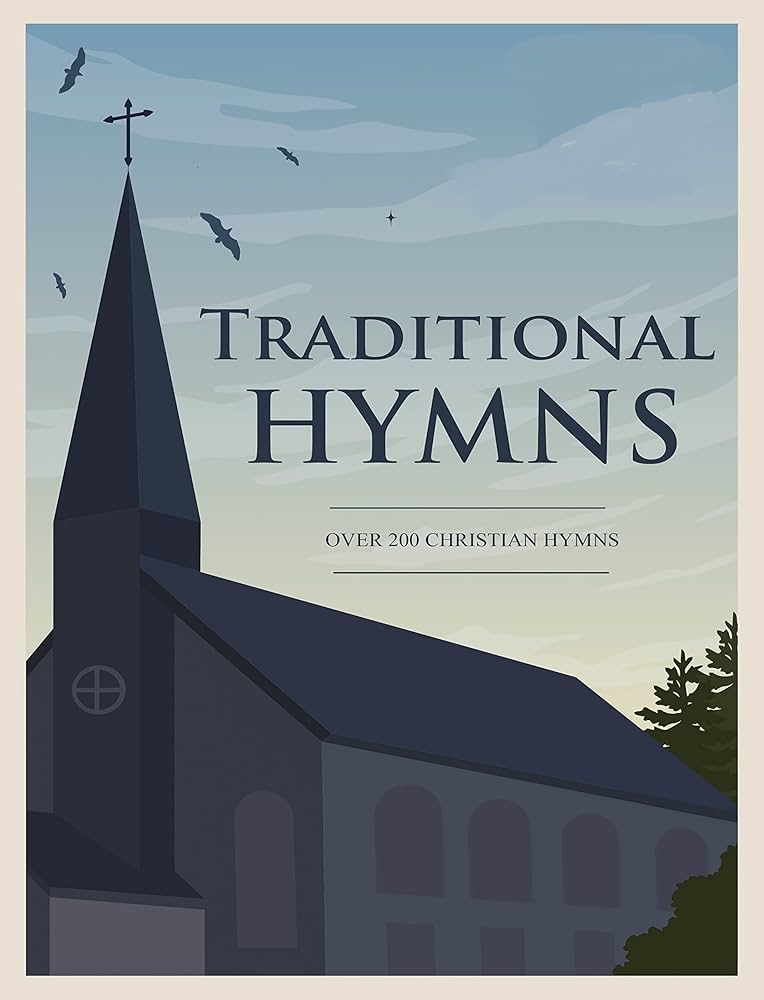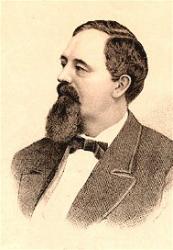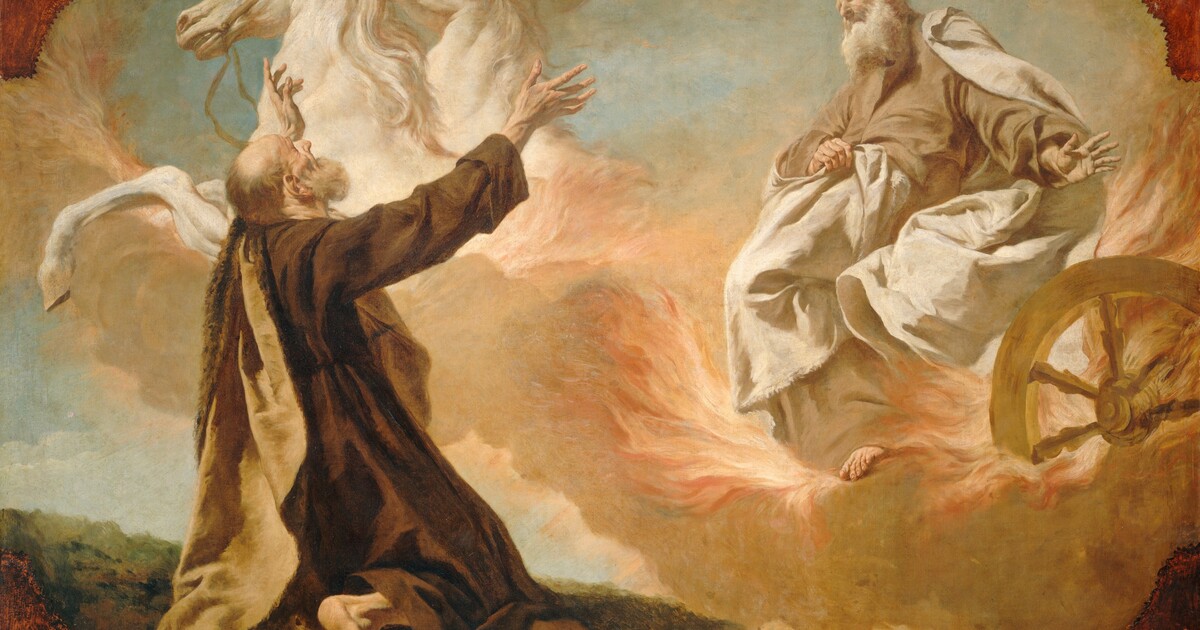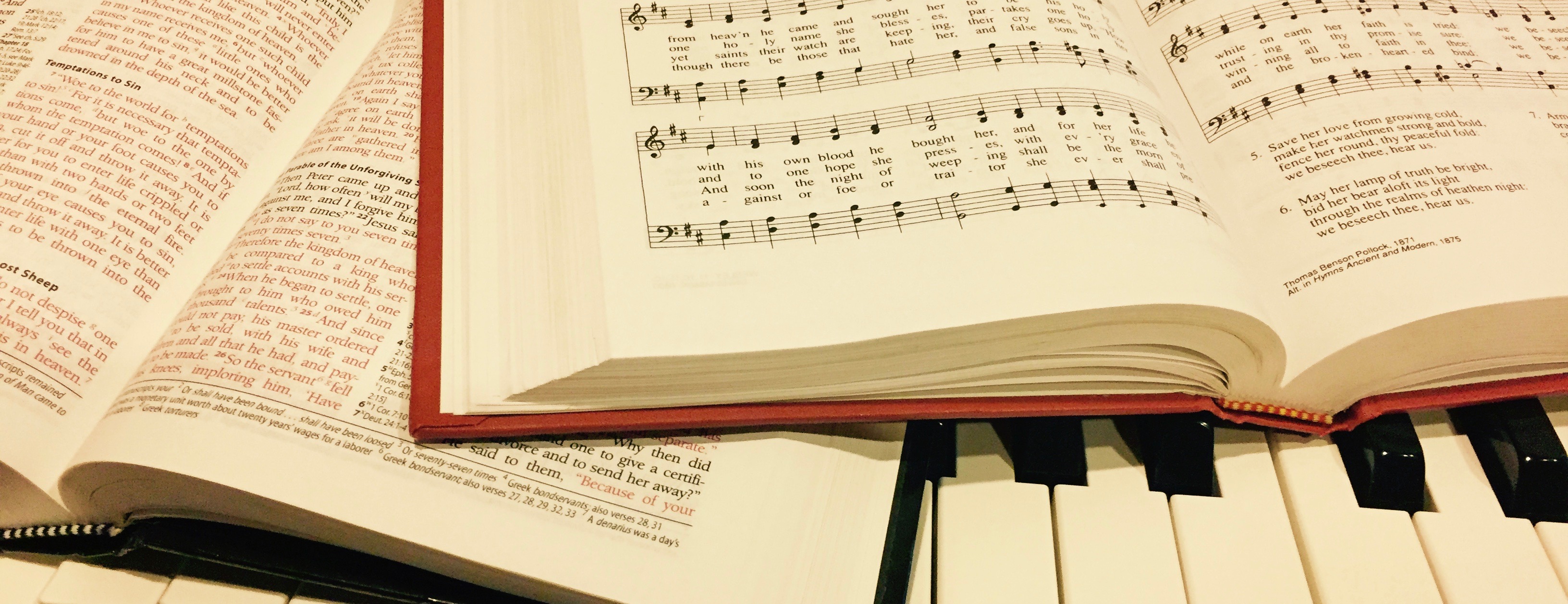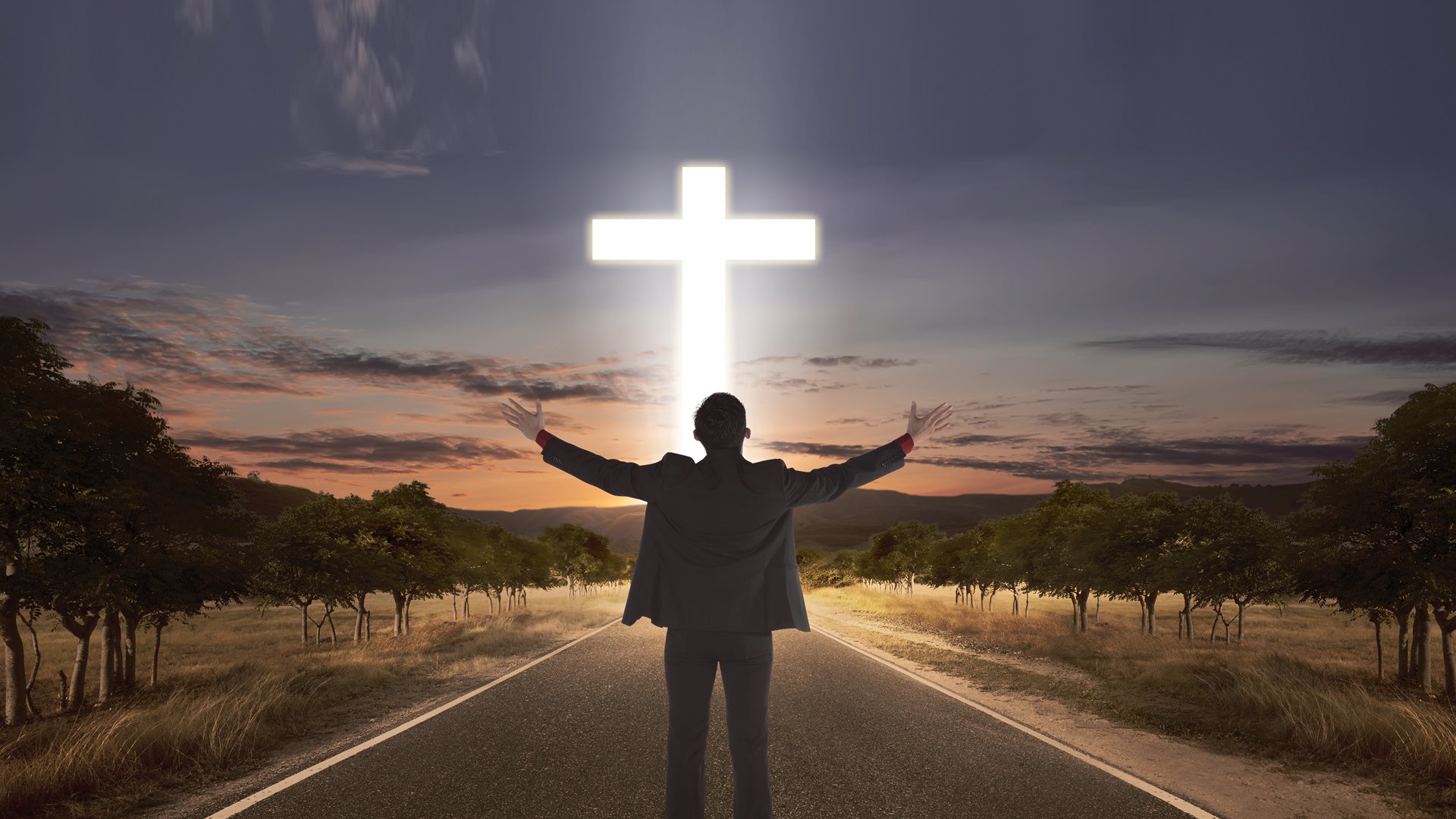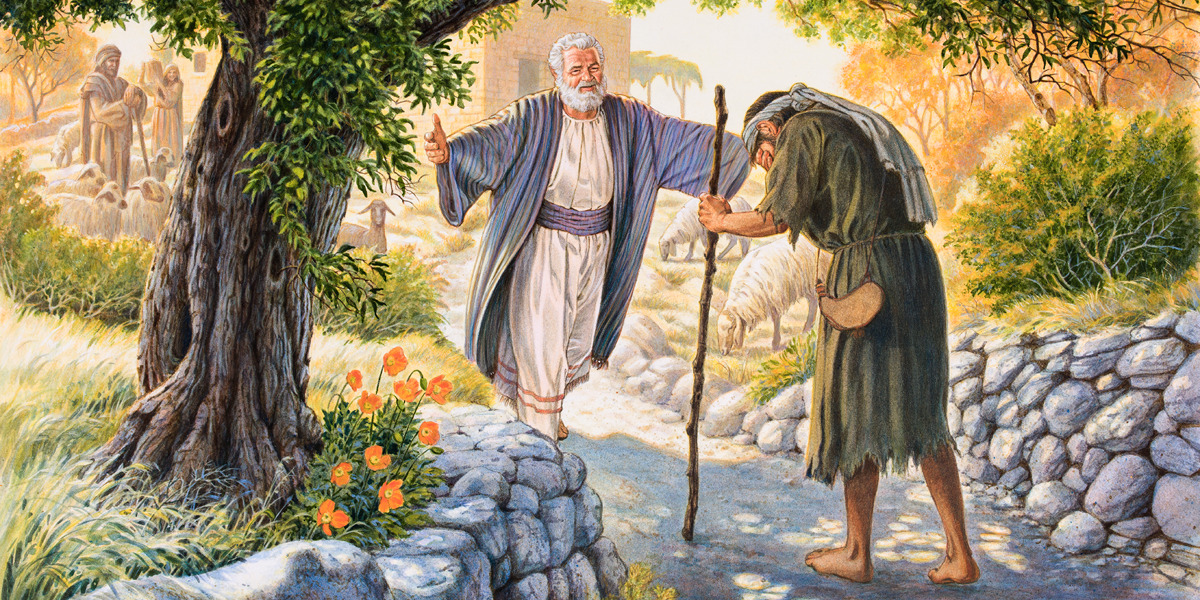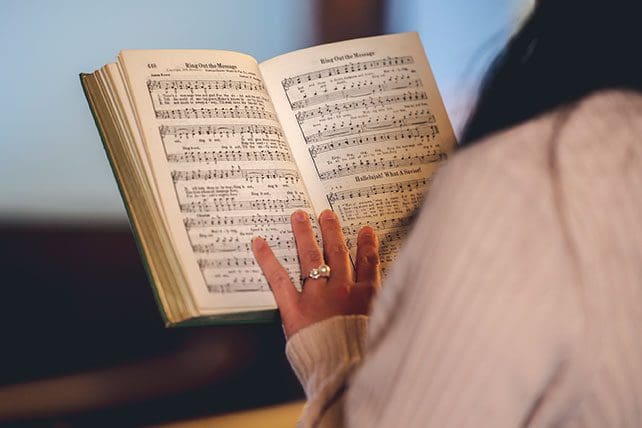O Worship the King
By Robert Grant
Lyrics
O gratefully sing his power and his love:
our shield and defender, the Ancient of Days,
pavilioned in splendor and girded with praise.
whose robe is the light, whose canopy space.
His chariots of wrath the deep thunderclouds form,
and dark is his path on the wings of the storm.
It breathes in the air, it shines in the light;
it streams from the hills, it descends to the plain,
and sweetly distills in the dew and the rain.
in you do we trust, nor find you to fail.
Your mercies, how tender, how firm to the end,
our Maker, Defender, Redeemer, and Friend!
whom angels delight to worship above!
Your ransomed creation, with glory ablaze,
in true adoration shall sing to your praise!
Bible Reference
Psalm 104
About This Hymn
Author – Robert Grant, 1779–1838
Composer – Arranged from Johann Michael Haydn, 1737–1806
Tune Name – Lyons
Meter – 10.10.11.11
Scripture Reference – Psalm 104
Key Verse – Bless the Lord, O my soul! O Lord my God, Thou art very great. – Psalm 104:1
“O Worship the King” is widely regarded as one of the finest hymns of the early nineteenth century—a majestic and poetic expression of adoration, praise, and awe toward the Almighty. Inspired by Psalm 104, which vividly describes the glory of God in creation, the hymn stands as a model for worship in its richness of imagery and depth of reverence. The exalted language, with phrases such as “King,” “Shield,” “Defender,” “Ancient of Days,” and “Maker,” combined with compelling metaphors—“His chariots of wrath the deep thunderclouds form”—conveys the majesty and grandeur of God with both literary eloquence and spiritual warmth. The hymn attributes to God His power, might, grace, and love, painting a vibrant picture of divine kingship and care.
Robert Grant, the author of this powerful text, was born in Bengal, India, in 1779, into a family closely connected with political and religious life. His father, Charles Grant, was a senior leader in the East India Company and a committed evangelical Anglican who also served as a Member of Parliament for Scotland. Following in his father’s footsteps, Robert pursued both public service and spiritual devotion. He eventually became the Governor of Bombay in 1834, where he was beloved for his compassionate leadership and enduring interest in Christian missions. Though deeply involved in civic affairs, Grant remained a devoted lay evangelical throughout his life. The people of India later honored his legacy by founding a medical college in Bombay that bears his name.
“O Worship the King” was originally published in 1833 in a hymnal titled Christian Psalmody, and after Grant’s death in 1838, his brother Charles published a small volume of his poetry under the title Sacred Poems in 1839. Of the twelve poems included, this hymn is the only one that has stood the test of time and remains in wide use across hymnals today.
The melody most often paired with the hymn, Lyons, adds a fitting majesty to the text. This tune first appeared in Sacred Melodies, a collection compiled by William Gardiner and published in London in 1815. Though it has often been attributed to Johann Michael Haydn, the younger brother of Franz Joseph Haydn, some uncertainty surrounds its precise origins. Variations of this melody appear in several compositions by both Haydn brothers, yet none match Gardiner’s arrangement exactly. In the United States, Lyons was introduced in 1818 through Oliver Shaw’s own edition of Sacred Melodies. Regardless of its exact authorship, the tune provides an excellent musical setting for the text, enhancing its themes of divine grandeur and sovereign majesty.
The word “worship” itself comes from the Old English expression “woerth-scipe,” meaning to ascribe worth to someone or something of supreme value. True Christian worship, as defined theologically, is the grateful response of a redeemed soul—mind, heart, and will—to the revealed character and redemptive work of God through Christ, as illuminated by the Holy Spirit through Scripture. O Worship the King reflects this beautifully. Its verses invite the worshiper to consider God’s attributes not only intellectually but devotionally, responding with heartfelt praise.
Throughout history, many notable figures have spoken about the power and importance of worship:
“Worship renews the spirit as sleep renews the body.” — Clarke Cabot
“Worship is transcendent wonder.” — Thomas Carlyle
“It is only when men begin to worship that they begin to grow.” — Calvin Coolidge
“Worship is the act of rising to a personal, experimental consciousness of the real presence of God, which floods the soul with joy and bathes the whole inward spirit with refreshing streams of life.” — Rufus Matthew Jones
“If Socrates would enter the room, we should rise and do him honor. But if Jesus Christ came into the room, we should fall down on our knees and worship Him.” — Napoleon Bonaparte
Such reflections affirm the enduring truth captured in Grant’s hymn: that worship is both an acknowledgment of God’s sovereign greatness and a response of reverent joy to His redeeming love. Through O Worship the King, believers across generations and cultures continue to lift their voices in praise to the One who reigns in splendor, clothed in light and majesty.
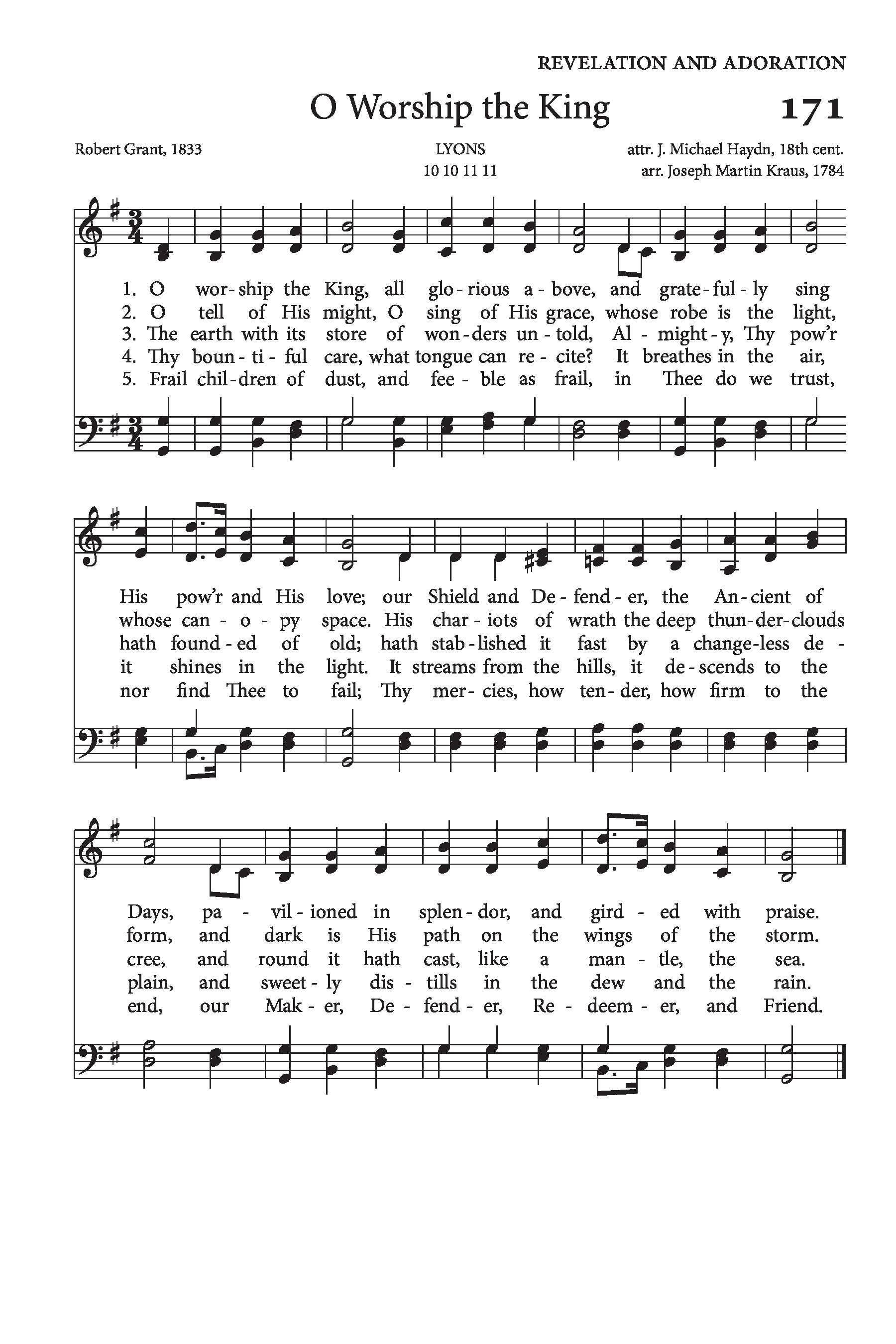

📬 Subscribe to Our Devotional Updates
Receive weekly hymns, devotionals, and website features directly in your inbox.
Hymn Information

- Category: Hymn
- Author/Writer: Robert Grant (1833)
- Added: July 4, 2025
- Last Updated: July 4, 2025
- Views: 1995
To view the author's biography, click their name above.
MIDI File
More Hymns by Robert Grant
Popular Hymns
Recent Blog Posts
Popular Blog Posts
Visit Us on Social Media
Latest from X (Twitter)
Tweets by HymnalLibraryLatest from Facebook
Latest on YouTube
Daily Bible Verse
Disclaimer
The hymns, sheet music, MIDI files, and related content on this website are provided for educational and research purposes only.
- Public Domain: Many of the hymns featured here are in the public domain and may be freely used.
- Copyrighted Works: Some hymns may still be under copyright protection. Where applicable, permission has either been requested from the copyright owner, or the content is shared under the principles of fair use for educational purposes.
⚠️ Important Notice: If you wish to reproduce, distribute, or use any copyrighted hymn beyond personal study or educational use, you must obtain permission directly from the copyright holder. This website does not grant any rights for commercial use yet.
If there is any other question please address it to us in our Contact Page, for further assistance. Thank you for using the site. May God Bless You.
